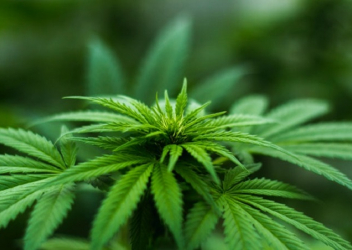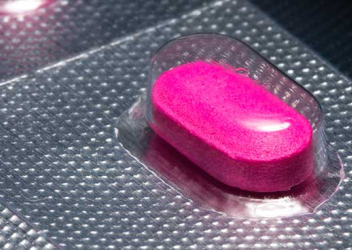Research In Action
Research In Action
Breadcrumb

This Halloween season, the Poison Control Center at CHOP has been responding to a new wave of concerns regarding children getting sick after eating very spicy tortilla chips. We have been through this before.
At the beginning of the 2021 school year, our Poison Control Center started to receive calls from school nurses about sick kids and very spicy tortilla chips. As we walked caregivers through managing their children’s pains, the similarities between these calls spiked our curiosity.
Our team discovered that these cases were all connected to the same corporate-sponsored, social media promoted, tortilla chip “challenge.” The challenge promoted the release of a single tortilla chip flavored using two of the world’s hottest peppers-- the Carolina Reaper and the Scorpion Chile. In the challenge, a single, incredibly hot corn chip is eaten. The person then tries to bear the heat for as long as possible without any sort of relief. While seemingly light-hearted, this presents legitimate concerns.
CHOP Poison Control Center's 2021 Experience With the Challenge
- We benchmarked with the Miami Poison Control Center and found that we received 30 calls about the chip over the course of two months between our Centers. This data was presented at the American College of Medical Toxicology’s Annual Scientific Meeting.
- 80% of these cases occurred at school.
- While the challenge is marketed “for adults only,” the average age of those affected was 14 years old (of the 30 cases, only 2 were adults).
- Symptoms recorded included oral burning (46%), abdominal pain (43%), vomiting (23%), and eye pain (10%).
- One patient was referred for emergency care due to concern about asthma exacerbation.
- In general, symptoms were highly unpleasant but temporary and resolved within several hours.
- Recommended supportive care included rinsing of the mouth and/or eyes and administration of milk/yogurt/ice cream to neutralize the toxin.
How “One-Chip” Can Cause Harm
The culprit behind the pain and discomfort caused by the challenge is capsaicin, a natural toxin derived from the Carolina Reaper and the Scorpion Chile peppers used to create the chip’s flavoring. Capsaicin is a well-known chemical that can cause burning sensations in the mouth, eyes, skin and respiratory tract and may lead the body to respond with inflammation or airway spasm. To further illustrate the spiciness of capsaicin, the Scoville scale (a scale used to measure the heat of foods) rates a standard jalapeno pepper at 5,000 units, whereas capsaicin rates at 16,000,000 units.
Where Do We Go From Here?
While these reported cases indicate only transient clinical effects, they raise the specter of future challenges that pose lasting risks to participants, especially to children and adolescents.
Although this challenge is probably not intended to include participation from minors, this advisory is not clear to consumers, and the social media marketing could be considered enticing to children. Children might ask their parents to buy the product, and parents might not understand the risks.
Ultimately, challenges that seem to be “harmless” can come with a cost. Kids missing class has a cost. School nurses (and the lack thereof) providing care has a cost; and while a free service, call volume to our Poison Control Centers has a cost. Indeed, some of the commercial packaging for these chips foresees injury and warns consumers to seek medical attention if sick from recommended use. “Corporate responsibility” would do well to account for these public health costs.
These cases highlight the utility of the Poison Help® line for school nurses, parents and the public in managing the effects of intentional exposures in addition to accidental poisonings. For any suspected poisoning, people can call their regional poison control center at 1-800-222-1222, 24/7 for immediate, free, confidential help from a doctor, nurse or pharmacist with extensive training in treating poisonings.
The Poison Control Center at CHOP would like to thank the Miami Poison Information Center for its partnership in this research, especially Wendy Stephan, PhD, MPH, and Richard Weisman, Pharm.D., FAACT.




